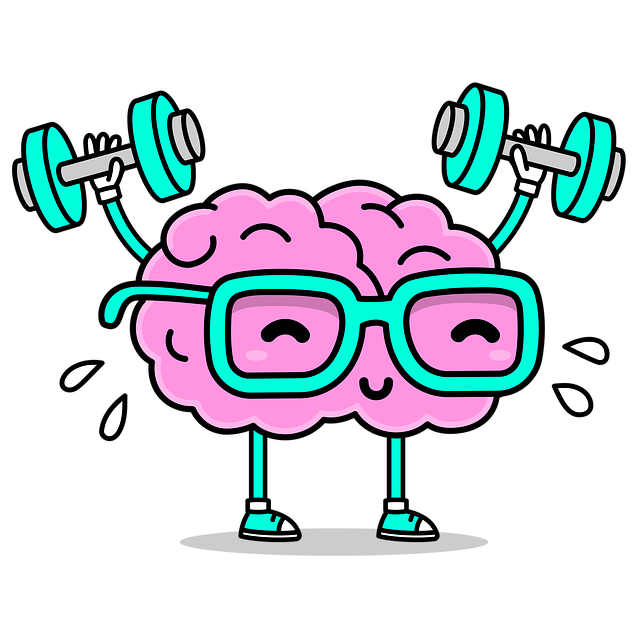Adolescent teens face unique challenges, including anxiety, depression, and phobias, hindering self-care practices. Structured mental health education programs empower them with coping strategies, prioritizing mental health, and building resilience. CBT therapy is crucial for overcoming specific fears like social anxiety or arachnophobia, enhancing self-care routines and mental well-being. Mindfulness meditation, self-awareness exercises, and open communication in a supportive environment strengthen the therapeutic process. Developing tailored self-care routines, integrating CBT, promotes emotional regulation and long-term mental wellness for adolescent teens with phobias.
Self-care is an essential aspect of overall well-being, especially for adolescent teens navigating a world of changing identities and emotions. Understanding their unique self-care needs is crucial for fostering healthy development. This article explores strategies to enhance self-care practices among teens, focusing on identifying and overcoming phobias that can hinder their progress. We delve into effective therapy techniques and provide long-term habit maintenance strategies, emphasizing the significance of addressing adolescent fears, particularly in relation to therapy for phobias.
- Understanding Adolescent Teens' Self-Care Needs
- Identifying and Overcoming Phobias that Hinder Self-Care
- Incorporating Effective Therapy Techniques for Self-Improvement
- Strategies for Sustaining Long-Term Self-Care Habits
Understanding Adolescent Teens' Self-Care Needs

Adolescent teens face unique challenges that significantly impact their self-care needs. As they navigate through a tumultuous period of identity formation and social development, addressing their emotional well-being becomes crucial. Many teens struggle with issues like anxiety, depression, and various phobias, which can hinder their ability to engage in effective self-care practices. Therefore, therapy for adolescent teens plays a pivotal role in helping them understand and manage these challenges.
Through structured mental health education programs designed to foster self-esteem improvement, emotional well-being promotion techniques can be taught. These programs empower teens with coping strategies, encouraging them to prioritize their mental health. By integrating self-care into their daily routines, adolescent teens can develop resilience, enhance their ability to handle stress, and build a positive sense of self—all essential components for overall growth and well-being.
Identifying and Overcoming Phobias that Hinder Self-Care

Many individuals, especially adolescents, struggle with self-care practices due to hidden phobias that can significantly hinder their well-being. These fears, ranging from social anxiety to specific phobias like agoraphobia or arachnophobia, often manifest as intense emotional responses to certain situations or objects. Overcoming these phobias is a crucial step in enhancing self-care routines and improving overall mental health. Adolescent teens who receive therapy for their phobias can learn effective coping strategies, such as cognitive behavioral therapy (CBT), which teaches them to manage anxiety and confront their fears in a safe environment.
Public awareness campaigns play a vital role in promoting understanding about phobias, reducing stigma, and encouraging teens to seek help. By educating communities on the signs of emotional regulation difficulties and burnout prevention, these initiatives can foster an environment that supports young individuals in addressing their mental health challenges head-on. This, in turn, empowers them to prioritize self-care practices that are essential for navigating life’s complexities.
Incorporating Effective Therapy Techniques for Self-Improvement

Incorporating effective therapy techniques is a powerful tool for self-improvement, especially for adolescent teens navigating phobias. Cognitive Behavioral Therapy (CBT), a well-researched approach, helps individuals identify and change negative thought patterns and behaviors. By learning to challenge distorted thinking, teens can manage their fears and anxiety more effectively, fostering greater resilience and emotional well-being.
In addition to CBT, practices like mindfulness meditation and self-awareness exercises enhance coping strategies. These techniques promote present-moment awareness, enabling individuals to respond to challenging situations with clarity rather than reacting impulsively. Encouraging open communication within a supportive environment further strengthens the therapeutic process. Mental health policy analysis and advocacy also play a role in ensuring accessible resources for adolescents seeking help, thereby facilitating their journey towards self-improvement.
Strategies for Sustaining Long-Term Self-Care Habits

Developing a self-care routine is an ongoing process that requires dedication and consistency, especially when aiming for long-term mental wellness. For adolescent teens struggling with phobias, integrating therapy sessions into their self-care regimen can be transformative. Cognitive Behavioral Therapy (CBT), for instance, equips individuals with strategies to challenge and overcome anxiety-inducing thoughts and behaviors, fostering emotional intelligence and regulation.
To sustain these habits, it’s essential to customize self-care practices to individual needs and preferences. This might involve incorporating daily journaling, mindfulness exercises, regular physical activity, or creative outlets like art therapy. By making self-care a non-negotiable part of their routine, adolescents can build resilience and better manage their phobias while promoting overall emotional well-being.
Improving self-care practices among adolescent teens involves addressing specific needs and challenges, such as understanding their unique self-care requirements and overcoming phobias that can hinder progress. Incorporating effective therapy techniques, tailored to address issues like anxiety or avoidance behaviors related to self-care, is crucial for fostering long-term self-improvement. By adopting evidence-based strategies outlined in this article, parents, caregivers, and teens themselves can navigate the path to enhanced well-being, where sustainable self-care habits flourish alongside healthy mental development, ultimately empowering adolescents to thrive.










